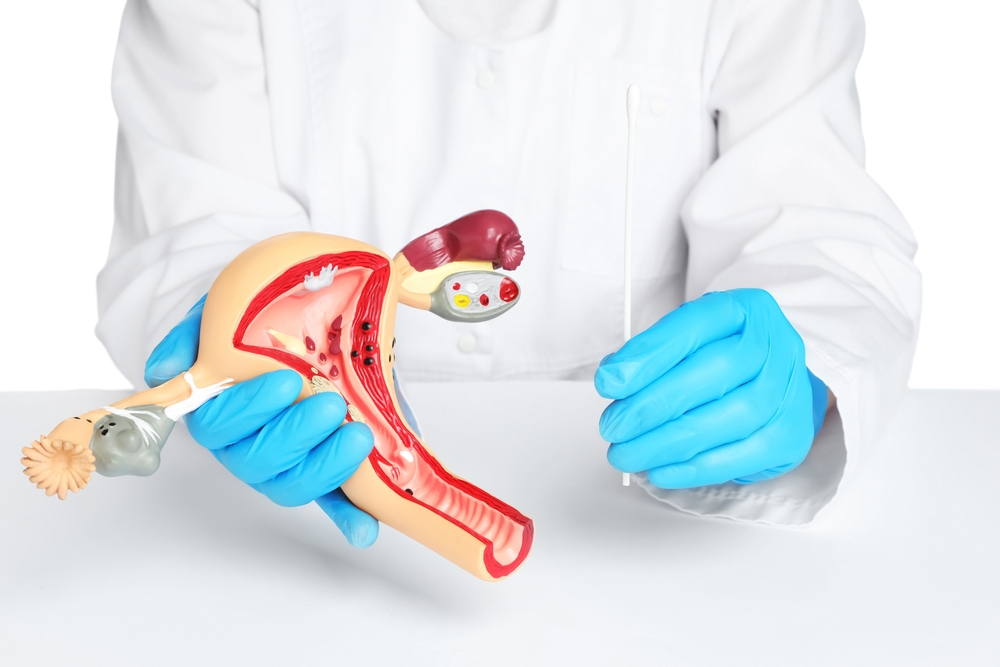
What is Ovarian Cystectomy?
Ovarian cystectomy is a surgical procedure performed to remove ovarian cysts, which are fluid-filled sacs that develop on the ovaries. This procedure is commonly used to treat ovarian cysts that are large, persistent, causing symptoms, or suspected to be cancerous. Ovarian cystectomy aims to remove the cyst while preserving the healthy ovarian tissue and function.
How is Ovarian Cystectomy Performed?
Ovarian cystectomy is typically performed using minimally invasive techniques such as laparoscopy or robotic-assisted surgery. During the procedure, small incisions are made in the abdomen, and a laparoscope (a thin, flexible tube with a camera and light source) is inserted to visualize the ovaries and surrounding structures. Specialized instruments are used to carefully dissect and remove the ovarian cyst while preserving the healthy ovarian tissue. In some cases, if the cyst is large or complex, open surgery (laparotomy) may be necessary.
Who is a Candidate for Ovarian Cystectomy?
Women with ovarian cysts that are causing symptoms such as pelvic pain, bloating, or pressure, or those that are suspected to be cancerous, may be candidates for ovarian cystectomy. A thorough evaluation by a gynecologist or gynecologic surgeon is necessary to determine the size, type, and location of the ovarian cyst and recommend appropriate treatment options. Factors such as the patient's age, medical history, and fertility goals will also be considered in the decision-making process.
What is the Recovery Process Like After Ovarian Cystectomy?
The recovery process after ovarian cystectomy varies depending on the specific surgical technique used and individual healing factors. In general, patients can expect to experience some discomfort, bloating, or vaginal spotting in the days following surgery. Pain medication, antibiotics, and instructions for caring for the surgical site will be provided to promote healing and prevent complications. Most patients can resume normal activities within a few days to weeks after ovarian cystectomy, although strenuous activity and heavy lifting may be restricted for some time.
What is the procedure after surgery?
Rest and Limit Activity: Avoid strenuous activities, heavy lifting, and vigorous exercise for the recommended period.
Keep the Area Clean: Gently clean the surgical area with water and mild soap as directed by your surgeon. Pat the area dry with a clean towel, and avoid rubbing or scrubbing.
Take Prescribed Medications: Take any prescribed pain medications, antibiotics, or other medications as instructed by your surgeon to manage pain and prevent infection.
Avoid Sexual Activity: Refrain from sexual intercourse and other sexual activities until your surgeon advises it is safe to do so. This typically takes several weeks to a month or more, depending on individual healing.
Wear Loose Clothing: Wear loose-fitting clothing, preferably cotton underwear, to minimize friction and promote airflow to the surgical area.
Attend Follow-Up Appointments: Keep all scheduled follow-up appointments with your surgeon to monitor your healing progress and address any concerns or complications promptly.
Avoid Tampons and Menstrual Cups: Refrain from using tampons and menstrual cups during your recovery period to prevent irritation and infection.
Stay Hydrated and Eat Nutritious Foods: Drink plenty of water and eat a balanced diet rich in vitamins and nutrients to support healing and boost your immune system.
Why Choose Samarpan Hospital for Ovarian Cystectomy?
Samarpan Hospital in Hisar, Haryana, offers expert care and advanced treatment options for women requiring ovarian cystectomy. Our team of experienced gynecologists, gynecologic surgeons, and minimally invasive specialists is dedicated to providing personalized care and optimal outcomes for each patient. With state-of-the-art facilities, cutting-edge technology, and a patient-centered approach, Samarpan Hospital is committed to delivering the highest quality of care and improving the lives of women with ovarian cysts.
Services
- Adenomyomectomy
- Cancer Surgery
- ECTOPIC SURGERY
- ENDOMETRIAL CANCER
- Endometriosis
- HYSTERECTOMY
- Infertility Surgery
- Isthmocele Repair
- LAPROSCOPIC INTERVAL CERVICAL ENCIRCLAGE
- LAPAROSCOPIC VAGINOPLASTY
- Myomectomy Surgery
- Prolapse Surgery
- RECANNALIZATION ( TUBOPLASTY )
- Reversal of family planning
- Total Laparoscopic Hysterectomy
- TUBECTOMY
- Urine Incontinence
- Vaginoplasty